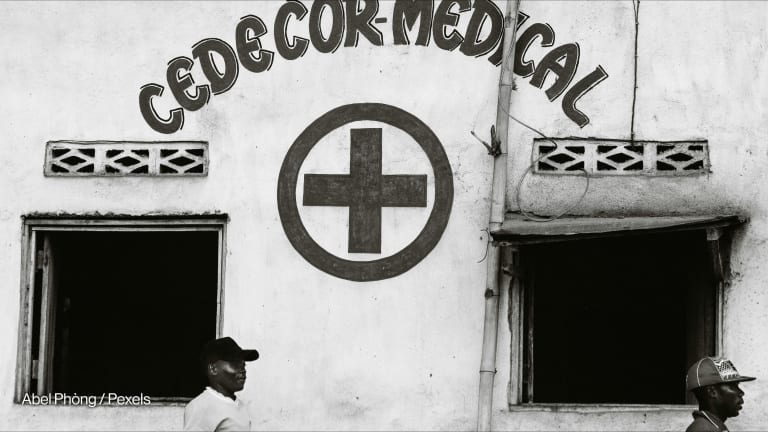
Just a few years ago, even the most steadfast advocates for universal health coverage would have been stunned to hear that the goal of achieving health for all would be embraced by every nation by 2015. But in September, global leaders made history by adopting the most ambitious development agenda yet, with achieving UHC among its chief aims.
The goal of UHC is to build systems that reach everyone with quality, essential health services without the threat of financial hardship. Because its core principles — “leave no one behind” and “prioritize the poorest” — underpin the entire sustainable development agenda, UHC is emerging as a unifying health objective for countries committed to the new goals.
Still, the real work to achieve UHC lies ahead. Reaching consensus on noble principles is far easier than making them a reality. It is important to be realistic about the Sustainable Development Goals’ country targets to ensure that promises don’t go unfulfilled.
Encouragingly, there is strong evidence that achieving UHC is both possible and wise for countries around the world. In a declaration convened by The Rockefeller Foundation and published in The Lancet, 267 leading economists in 44 countries endorsed UHC as the right, smart and affordable path to eradicate poverty and promote sustainable growth. They estimate that the economic benefits of investing in basic health care will be 10 times greater than the costs.
The enormous returns from investing in health make us optimistic that UHC can be sustainable in the long term, and another principle that underpins the new development agenda. But to achieve true sustainability, low- and middle-income countries must begin to rely less on donors. As such, some countries are developing innovative financing mechanisms that allow them to invest more in their own health and development.
See more stories on universal health care:
► Jumping the health care hurdles: UHC and noncommunicable diseases
► UHC: A viable proposition for India?
► Is the momentum right for universal health coverage?
Hard-to-reach populations — including the poor, disabled, elderly, informal sector workers and their families, and groups living in remote areas — are often the last to be covered under UHC efforts. To effectively serve these populations, countries must ensure that equity and sustainability govern decisions through every aspect of designing, financing and implementing UHC.
The rationale for this is simple: the most marginalized populations will, by default, continue to be left behind unless a conscious effort is made to prioritize their needs.
To address this in practice, countries face tough decisions:
• How should they use their available resources in an equitable and efficient manner?
• Should they offer universal entitlements or other coverage mechanisms that target certain populations?
• Should the limited resources for health go towards extending health coverage, or towards strengthening health services to ensure quality of care?
One promising way to enshrine equity in UHC financing is to adopt a staged approach that directs limited resources toward the poorest and most vulnerable first. This is in contrast to UHC schemes that cover higher-income populations first, such as those that start by covering formal sector workers. Countries like Rwanda, Sri Lanka, Mexico and Thailand provide evidence that even with initially scarce resources, prioritizing the poorest and reaching them with health services is possible, and pays huge dividends for population health, economic growth and wellbeing.
Some countries working to achieve UHC are developing innovative ways to mobilize funds to extend health insurance coverage to all populations, and particularly to hard-to-reach and underserved groups. For example, in Gabon and Laos, small taxes on mobile phone companies and large hydroelectric dams, respectively, bring in between $25 million and $30 million per year. Gabon, with a population of less than 2 million, also leverages 1.5 percent on foreign currency exchanges, mobilizing another $8 million each year. In the Philippines, taxes on unhealthy products like alcohol and tobacco ultimately enabled the poorest segments of society to be enrolled in the national PhilHealth scheme.
Other countries are mobilizing new revenue for their entire UHC schemes (for example, Ghana’s VAT tax) while taking precautions to ensure that the financing system is equitable and benefits poor and vulnerable populations.
These are not isolated examples. Over 100 nations across the development spectrum are taking steps toward health for all. Countries are making some of the largest strides by sharing best practices and partnering to create new solutions to common challenges, through initiatives like the Joint Learning Network for Universal Health Coverage.
To help these efforts stay on course and to give other countries the tools to take their first steps toward UHC, an effective measurement and accountability mechanism must be established. In financing discussions, policymakers must think beyond the need to simply mobilize more resources and explicitly address issues of equity and sustainability, including who pays and who benefits.
Finally, as low- and middle-income countries work toward sustainable health financing systems, the international community must keep its promises to support these efforts.
The SDGs have created a new wave of momentum to achieve UHC. With a commitment to equitable and innovative approaches to fund health for all, we can unlock all of the potential that UHC has to offer.
To read additional content on global health, go to Focus On: Global Health in partnership with Johnson & Johnson.









